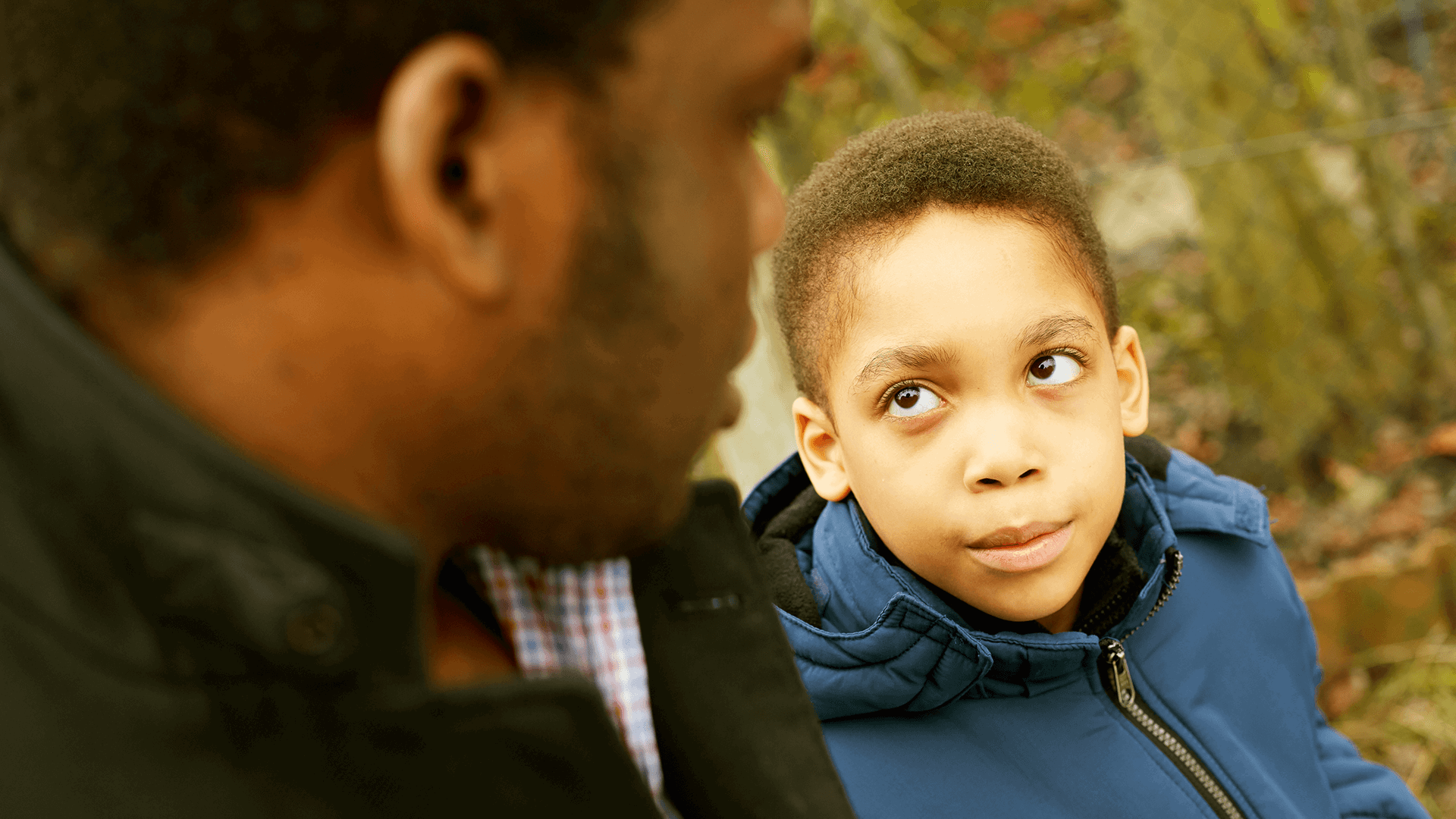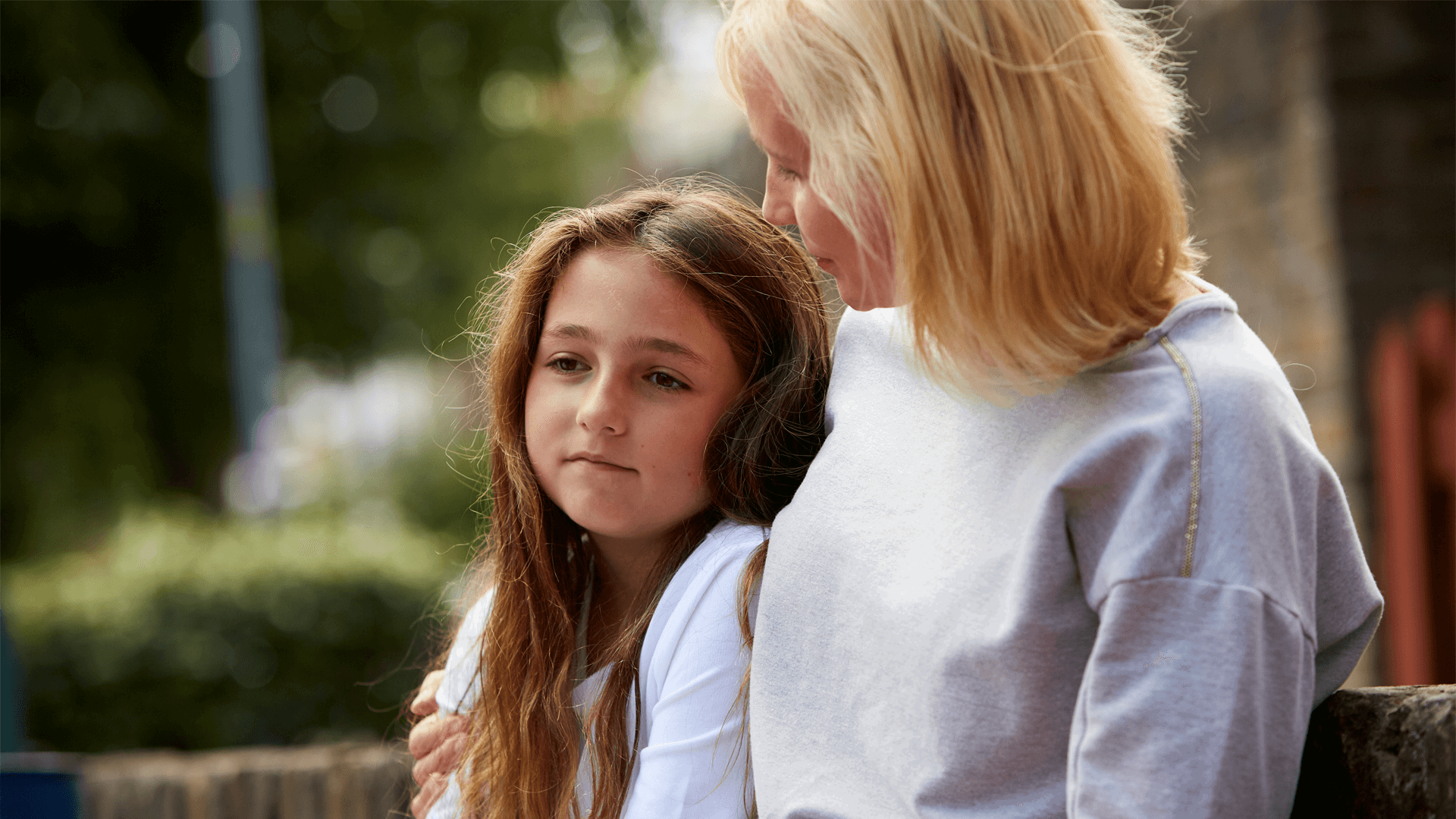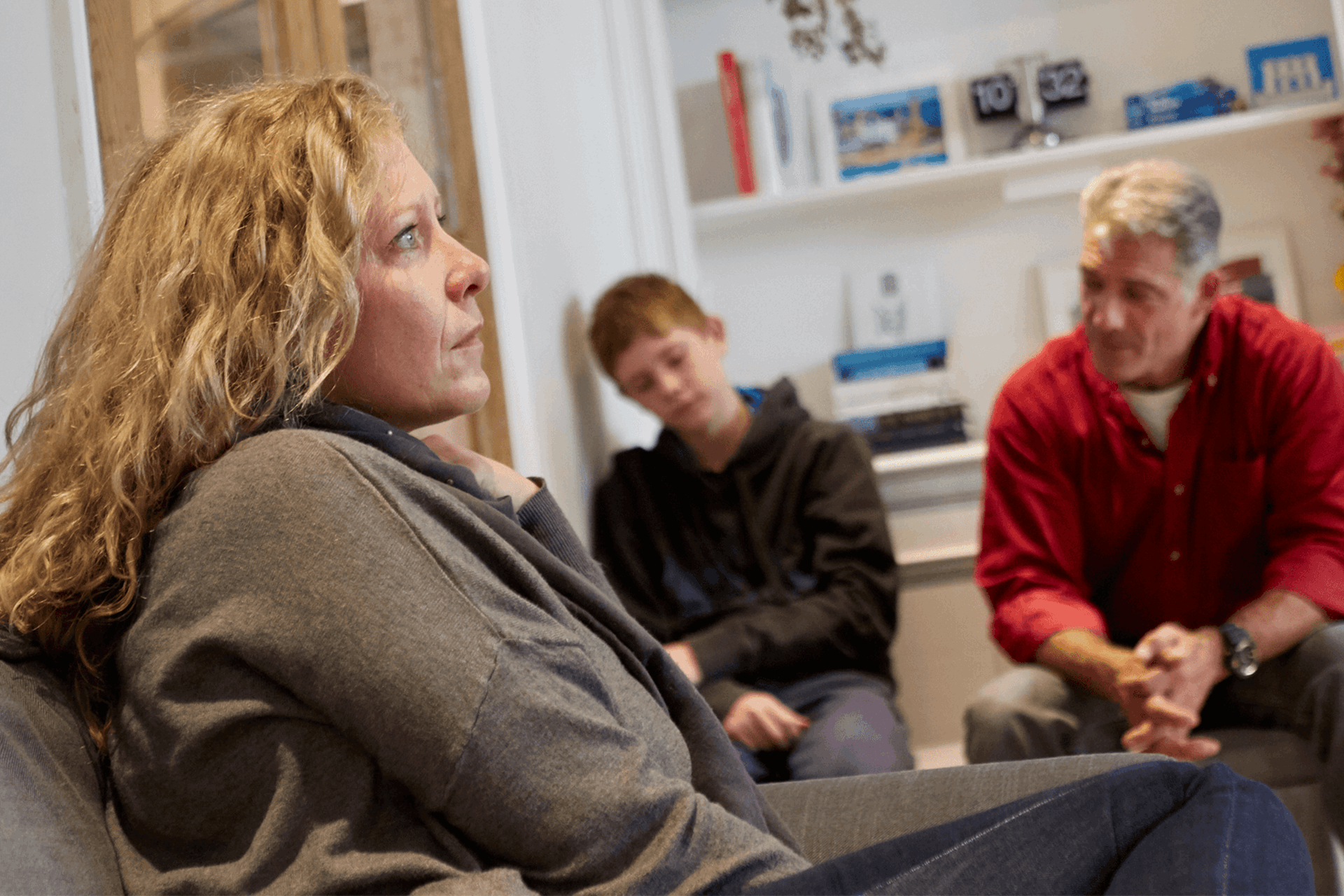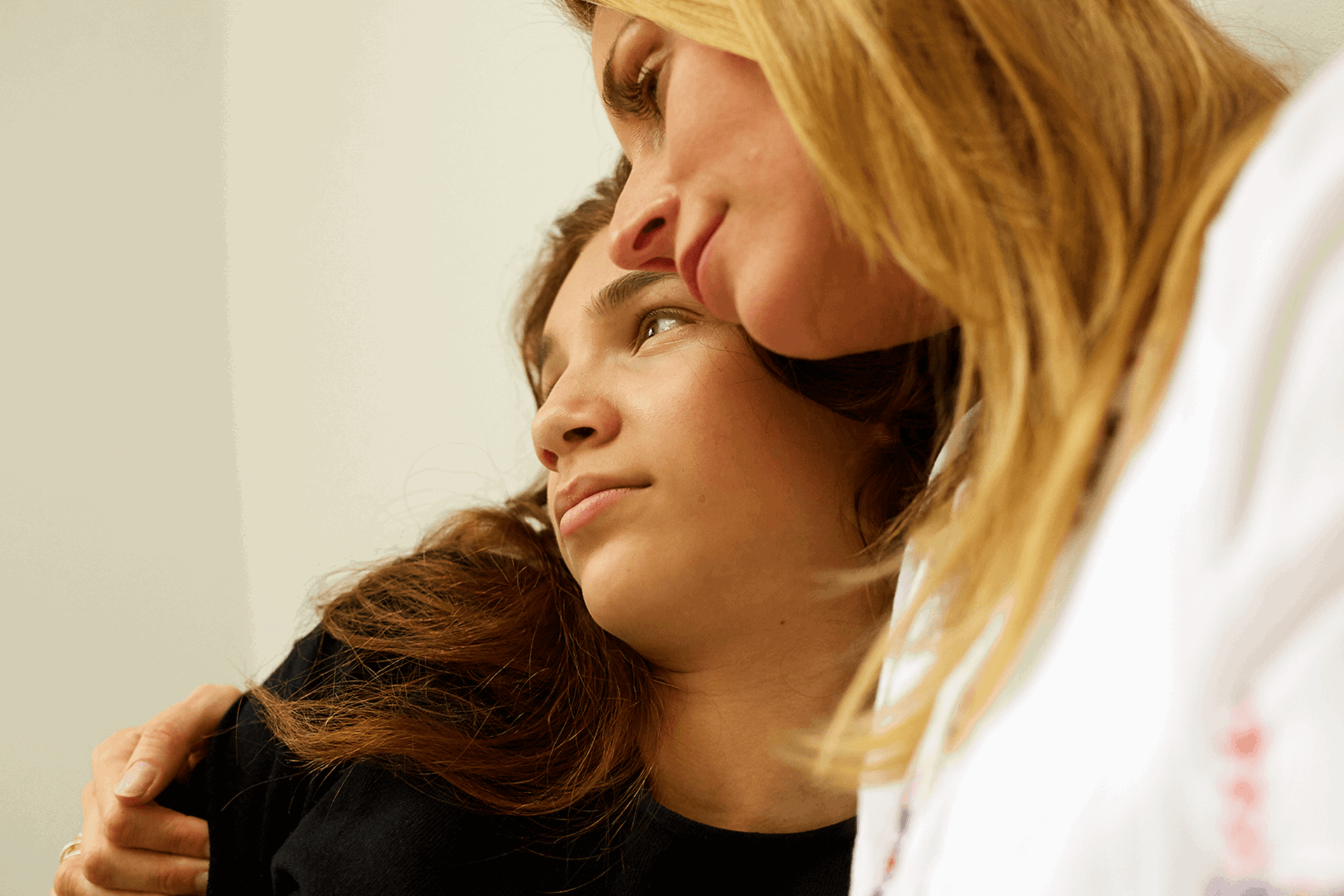Keep communication open
-
If you do see signs that are worrying you, it’s really important to try to talk to your child. Keep communicating with them in any way you can. This could be hugging, listening to them or texting. Just focus on keeping the line of communication open.
You can find more tips on talking to your child in our guide for parents.






